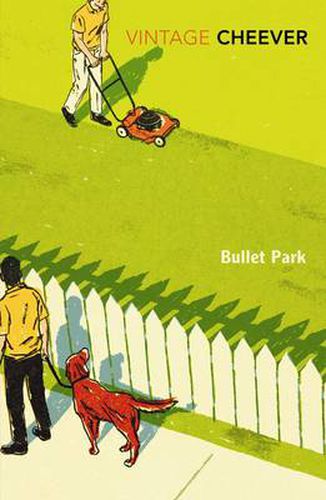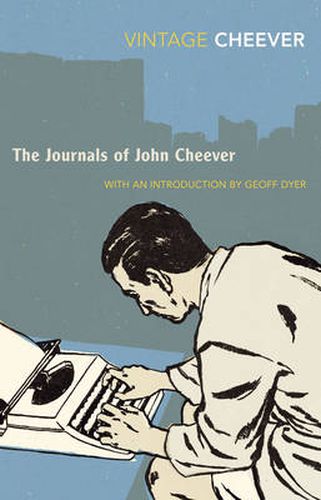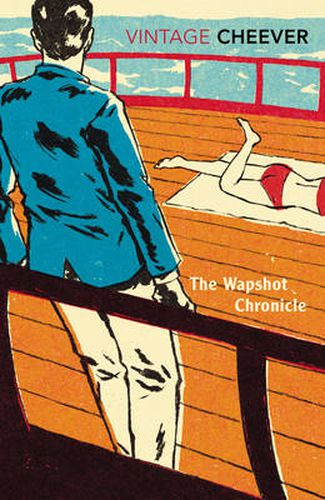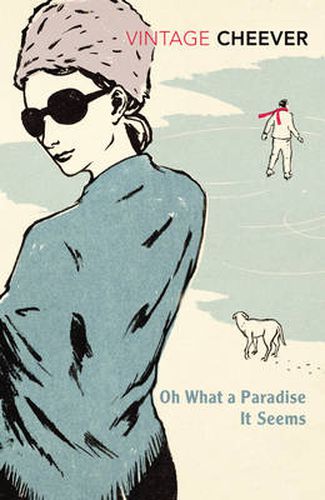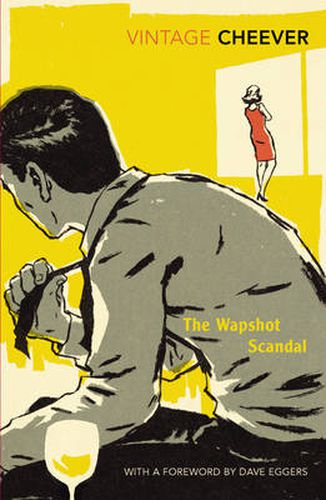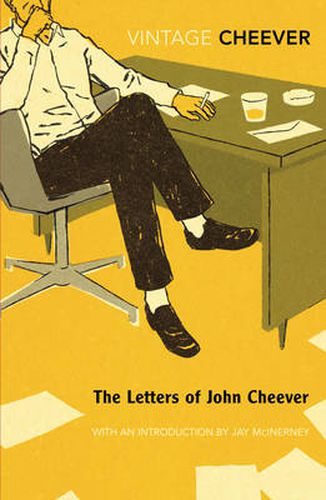Collected Stories
John Cheever
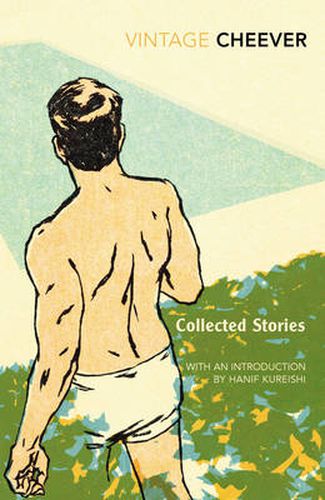
Collected Stories
John Cheever
The complete collection of award-winning stories from one of the finest American writers of the last century
John Cheever’s Collected Stories explores the delicate psychological frameworks of 20th century suburbia.
WITH AN INTRODUCTION BY HANIF KUREISHI
This outstanding collection by Pulitzer Prize-winning novelist John Cheever shows the power and range of one of the finest short story writers of the last century. Stories of love and of squalor, they include masterpieces such as ‘The Swimmer’ and ‘Goodbye, My Brother’ and date from the time of his honourable discharge from the Army at the end of the Second World War.
Review
Rebecca Starford
John Cheever’s Collected Stories, first awarded the Pulitzer Prize for Fiction in 1979, is a magnificent, inspiring collection, and one that has resolutely stood the test of time. Spanning from his earliest writings in the mid 1940s to the late 1970s, Collected Stories features Cheever’s most iconic works, including ‘The Swimmer’, ‘The Enormous Radio’, and ‘The Country Husband’. These stories plumb the depths of human experience and have rightfully earned Cheever the title ‘Chekhov of the suburbs.’ And yet, for all his accolades, John Cheever (1912–82) faded from critical attention after his death. It wasn’t until 1991, with the publication of the scandalous The Journals of John Cheever (also available in Vintage Classic) that his reputation underwent significant revision. Here, his public persona was so brutally contrasted with his private – hitherto depicted as wry, conservative and monogamous man; the journals instead portrayed Cheever as plagued by chronic alcoholism. He struggled, too, with acceptance of his bisexuality, for which he consistently blamed his long-suffering wife, Mary.
All this biographical stuff naturally complicates the way you read him. Was he an essentially good yet brooding chap, or an adulterous, misogynous tyrant? You’ll need to read The Journals to decide on that yourself – and ultimately, it would be a shame if it clouded your opinion. Because the man, as horrible as he sounded, can write, and there remains such a thrilling sense of anticipation when cracking open the Cheever spine – as if delving into something fresh and cool and profound. Never has a writer so poignantly captured the tedium of the American suburbs.
Like his contemporary Richard Yates, Cheever’s fiction dwells largely in the domestic, exploring life in mid-twentieth century America, and it is located mostly in the Upper East Side and the suburbs of Westchester. We read about families holidaying in ski lodges, home renovations, servants and parties; characters are re-occurring. They are ordinary folk, with ordinary feelings – yet something larger and more damaging festers in them: loneliness and helplessness. And while you can always count on Cheever’s stories to be grim, there is such aching beauty in these tales, so sad and authentic. And beneath the surface of sparse, neat prose seethes other kinds of compelling desire: for escape, for the more generous times in the past, and for the climax of confined rage and corruption.
For me, stand-out stories in the collection are and ‘The Sorrows of Gin’ and ‘The Swimmer’. ‘The Sorrows of Gin’ is a short tale, told from the perspective of a little girl, Amy. Her parents are upper-middle class and like to attend parties – they both enjoy a tipple. The family employs a cook, Rosemary, who it later transpires has a severe drinking problem. Amy’s father has a drinking problem of his own – he needs several drinks in the evening before he softens: ‘At last,’ Amy thinks, relieved, ‘he is happy.’ ‘The Swimmer’, Cheever’s most famous and most anthologised story, remains awe-inspiring in its casual, cruel critique of bourgeois America, chronicling the Narcissus-like Neddy Merrill’s bizarre quest to swim across all the swimming pools in his neighbourhood. It is a brilliant story, perfectly encapsulating Cheever’s most dominant themes, mixing the bitter realism of loss of wealth and prestige with Neddy’s surrealist nostalgia for the past.
Rebecca Starford is editor of **.
Review
Rebecca Starford, editor of Kill Your Darlings
John Cheever’s CollectedStories, first awarded thePulitzer Prize for Fiction in1979, is a magnificent,inspiring collection, andone that has resolutelystood the test of time.Spanning from his earliestwritings in the mid 1940s to the late1970s,* Collected Stories* features Cheever’smost iconic works, including ‘TheSwimmer’, ‘The Enormous Radio’, and‘The Country Husband’. These storiesplumb the depths of human experienceand have rightfully earned Cheever thetitle ‘Chekhov of the suburbs.’ And yet,for all his accolades, John Cheever(1912–82) faded from critical attentionafter his death. It wasn’t until 1991, withthe publication of the scandalous TheJournals of John Cheever (also available inVintage Classic, PB, $12.95) that his reputationunderwent significant revision.Here, his public persona was so brutallycontrasted with his private – hithertodepicted as wry, conservative and monogamousman; the journals instead portrayedCheever as plagued by chronic alcoholism.He struggled, too, with acceptance of hisbisexuality, for which he consistentlyblamed his long-suffering wife, Mary.
All this biographical stuff naturally complicatesthe way you read him. Was hean essentially good yet brooding chap, oran adulterous, misogynous tyrant? You’llneed to read The Journals to decide on thatyourself – and ultimately, it would be ashame if it clouded your opinion. Becausethe man, as horrible as he sounded, canwrite, and there remains such a thrillingsense of anticipation when cracking openthe Cheever spine – as if delving intosomething fresh and cool and profound.Never has a writer so poignantly capturedthe tedium of the American suburbs.Like his contemporary Richard Yates,Cheever’s fiction dwells largely in thedomestic, exploring life in mid-twentiethcentury America, and it is located mostlyin the Upper East Side and the suburbs ofWestchester. We read about families holidayingin ski lodges, home renovations,servants and parties; characters recur. Theyare ordinary folk, with ordinary feelings –yet something larger and more damagingfesters in them: loneliness and helplessness.There is such aching beauty in thesetales, so sad and authentic. And beneaththe surface of sparse, neat prose seethesother kinds of compelling desire: forescape, for the more generous times in thepast, and for the climax of confined rageand corruption.
For me, the stand-outs are ‘The Sorrowsof Gin’ and ‘The Swimmer’. ‘The Sorrowsof Gin’ is a short tale, told fromthe perspective of a little girl, Amy. Herparents are upper-middle class and like toattend parties – they both enjoy a tipple.The family employs a cook, Rosemary,who it later transpires has a severe drinkingproblem. Amy’s father has a drinkingproblem of his own – he needs severaldrinks in the evening before he softens:‘At last,’ Amy thinks, relieved, ‘he ishappy.’ And ‘The Swimmer’, Cheever’smost famous and most anthologised story,remains awe-inspiring in its casual, cruelcritique of bourgeois America, chroniclingthe Narcissus-like Neddy Merrill’s bizarrequest to swim across all the swimmingpools in his neighbourhood.
Rebecca Starford is editor of Kill YourDarlings
This item is not currently in-stock. It can be ordered online and is expected to ship in approx 2 weeks
Our stock data is updated periodically, and availability may change throughout the day for in-demand items. Please call the relevant shop for the most current stock information. Prices are subject to change without notice.
Sign in or become a Readings Member to add this title to a wishlist.



